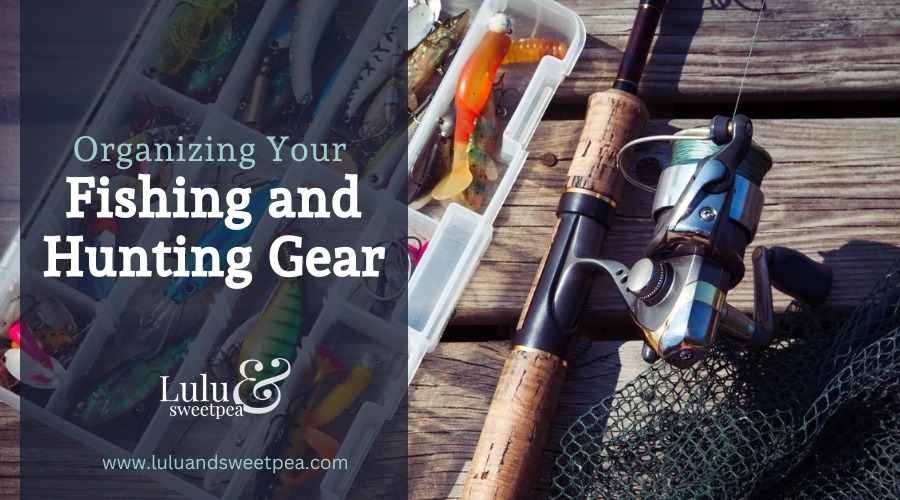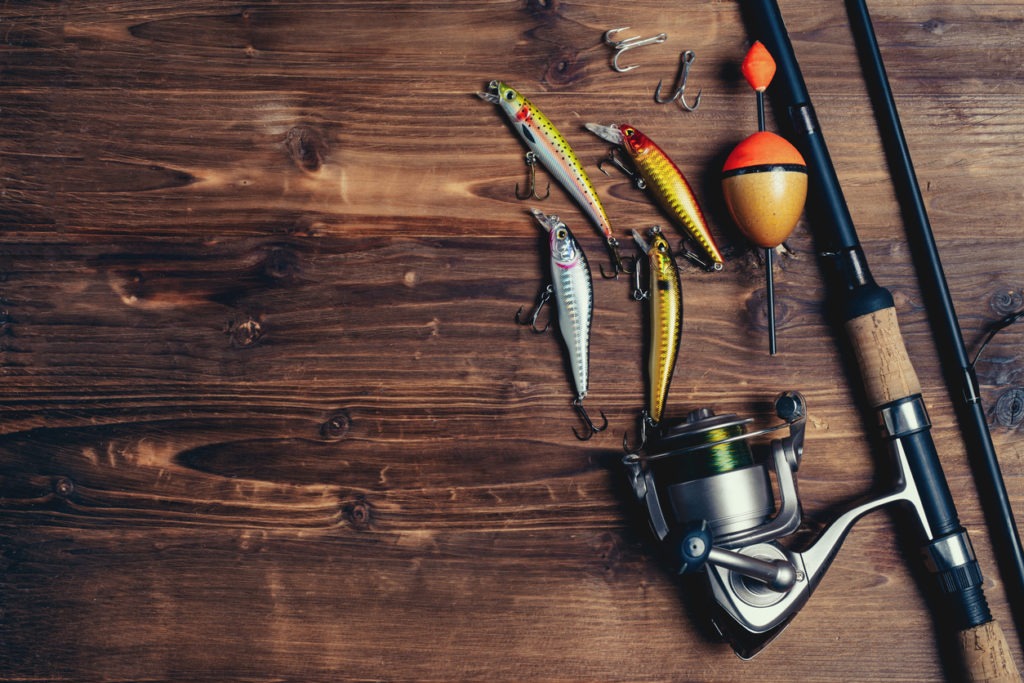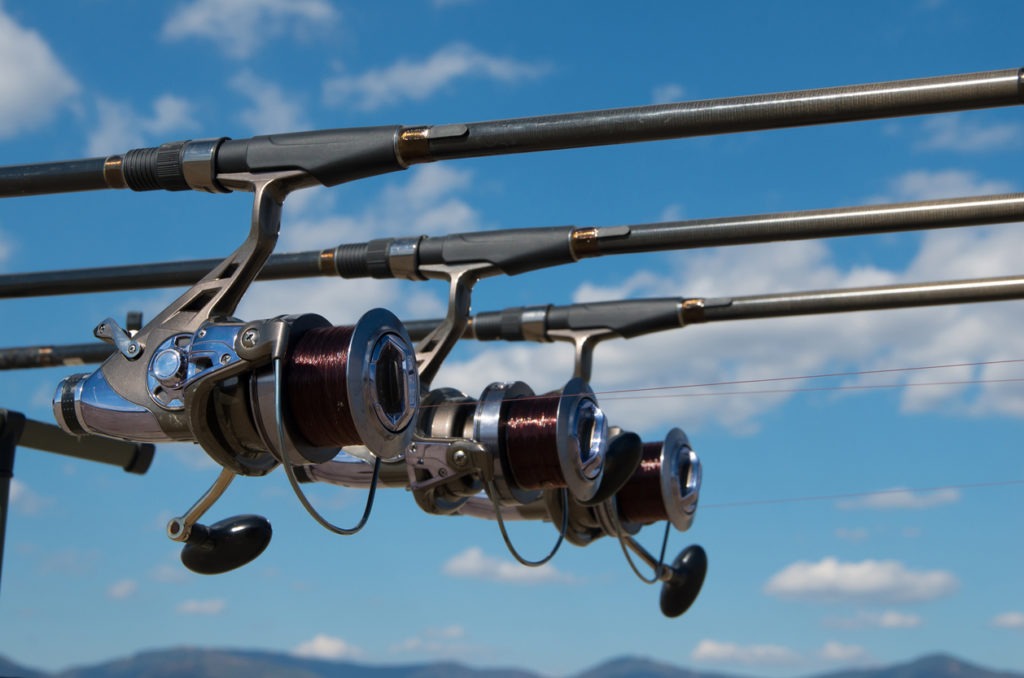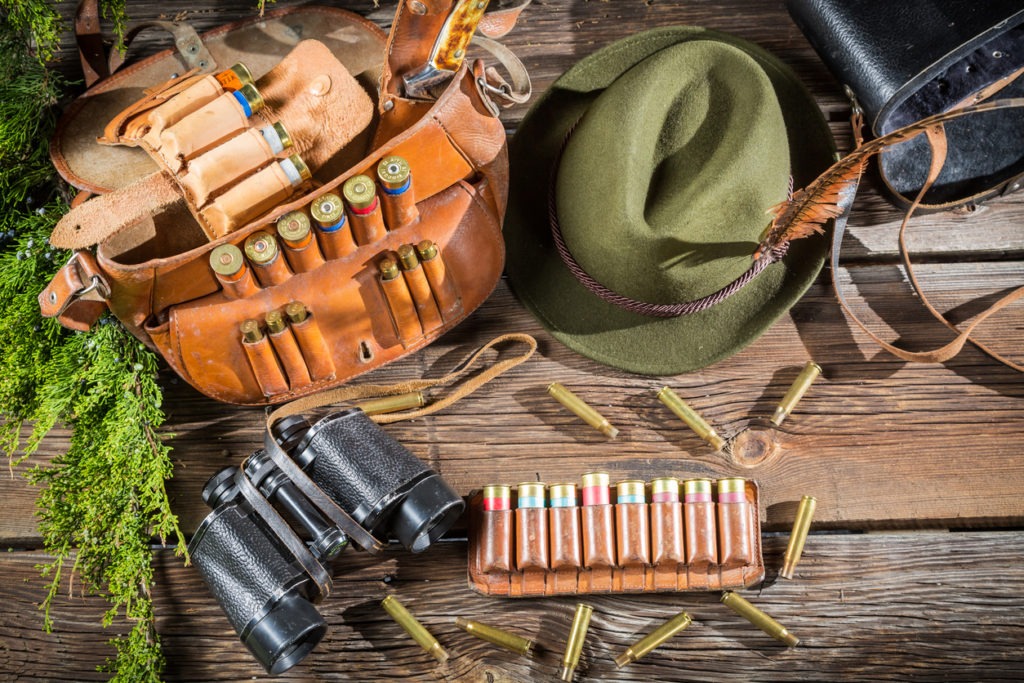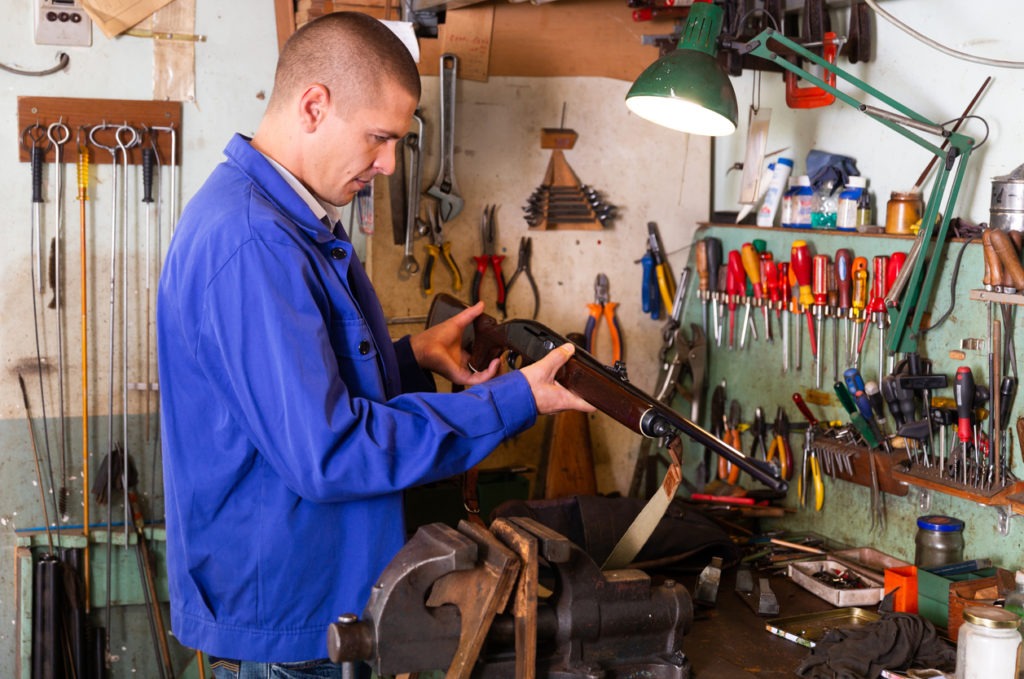If you enjoy fishing and hunting, you most probably have a large collection of accouterments, including fishing rods, lures, shotguns, bows, and arrows. Your need for secure storage increases as your collection for these pastimes expands. Due to the seasonal nature of both of these pastimes, you’ll need to find a suitable location to keep them during the off-season. The majority of people who share the same hobbies keep their gear and equipment in their garages, where all other tools are also kept.
Here are some organizing suggestions that may be useful if you’re having trouble keeping your hunting and fishing equipment organized.
Organizing your Fishing Gear
No matter where you live, you can engage in the pleasant activity of fishing all year long. In the winter, you may drill a hole in the frozen lake and ice fish, and during the warm summer months, you can set out on a boat or wade waist-deep in the river to fly fish. The only situation that could cause you to worry is if your fishing equipment is a mess and you have to search around for your preferred hook or lure. Regardless of when you plan to hit the water, the following hints and ideas will help you arrange your fishing equipment.
1. Sort your Tackle
The most mess will be made by your tackle, which includes your baits, lures, hooks, weights, and anything else in between. The first thing you should do is spend money on a tackle box with movable compartments so that you can alter it to fit the varied sizes of your tackle. Take everything out of your box and sort through it if you’ve been merely tossing things in there for months or years.
2. Label Everything
Not just neurotic organizers have the bad habit of labeling everything. It might help make it simpler to organize your tackle. As long as you can read what you write by hand, you don’t need to purchase a costly label maker. Get a roll or two of blue painter’s tape instead. It is simple to write on, adheres to almost anything, and can be removed without causing any surface damage. It’s a way to mark everything in your tackle box without paying a ton of money or permanently attaching your labels to anything. It’s the best of all three worlds.
3. Invest in a Rod Rack
When not in use, you can store all of your rods in a garage corner, but don’t count on being able to swiftly retrieve them when you’re prepared to hit the water. Like headphones in your pocket, fishing poles frequently tangle. If you’re serious about maintaining your fishing equipment, invest in a rod rack that you can put in your garage or closet to keep your rods when you aren’t using them.
4. Choose Clear Containers
Though dark green plastic undoubtedly makes up the majority of the tackle boxes you see at the store, there are other materials you can use. Choose a clear box if you plan to use your tackle frequently so you can see everything inside. You will be able to locate every piece precisely with this method. You’ll be able to see the item(s) you’re looking for before you even open the box.
5. Stock up on Zip lock Bags
Some of your favorite soft lures and baits may leak through the package they come in, making a mess. Keep them from destroying the interior of your recently organized tackle box. You can keep them without a fuss by just slipping them into a Ziplock bag and sealing it without removing them from their original package.
6. Stick to Your Organization Style
Once you’ve sorted your fishing gear, it may be simple to become complacent and allow it to become disorganized once more. When it starts to irritate you, resist the impulse since you’ll just have to fix it all again. Decide on your organizational style, then adhere to it. Take care of your fishing equipment so you can use it for many years to come. It’s simpler than you would think.
Organizing your Hunting Gear
One thing is constant, whether you’re duck or deer hunting: all that hunting gear can get messy. Here are some ideas for keeping your hunting supplies organized.
1. Take an Inventory
It is a good idea to inspect your hunting supplies and make a list of any damaged gear before storing them. Check for fading and wear on the clothing, tree stands, and harnesses. It will be difficult to conceal with faded camo. Verify that the straps, clips, and zippers function as intended.
The conclusion of the hunting season is the ideal time to inventory your hunting supplies. Additionally, you can benefit from lower pricing during the off-season to upgrade or replace worn-out gear.
2. Wash and Dry Hunting Clothing
Before being put away, hunting clothing needs to be completely washed and dried. To remove the current odors, you must use a detergent that has been properly prepared or baking soda. It’s crucial to run your washing machine through a freshwater cycle before washing. This will get rid of any odors from your earlier washing.
3. Sanitize Animal Cells
The saliva tends to build up over time in a chamber that resembles a tube in animal cells. When stored without being cleaned, these turn into germ-breeding environments. The next time you utilize them, it will pose a serious health risk! Your whistles can be cleaned by giving them a good rinse in cool water and thoroughly air drying them before storing them.
4. Change your Hunting Boot’s Insoles
During the hunting season, the insoles of your hunting boots collect a lot of moisture and serve as a haven for bacteria. It is preferable to get new ones as opposed to trying to wash them clean. You might even discover a new, far nicer one during the off-season sale for a much lower price.
5. Dismantle Firearms
It is crucial to clean and disassemble your gun before storing it to keep it in good working order. Disassemble the barrel as well as the other operating components. The bore of the gun can be cleaned with a modest amount of solvent. The cleaning brush should be moved from the breech to the muzzle. Store the rifle with the barrel facing up to prevent warping.
6. Remove All the Batteries from Devices
Your electronics may become damaged by leaking batteries. Whether it’s a straightforward flashlight, GPS, or headlamp. The interiors of leaking batteries corrode, ruining the machinery. With new batteries, you can use your equipment fully and begin the following hunting season.
7. Use a Scent-Free Area to Store Your Hunting Gear
If your equipment absorbs smells from the environment while being stored. Consequently, your upcoming hunting trip could fail! Aromas are removed with a thorough wash and drying. In the off-season, store them in scented-free containers.
Plastic containers and scented-free bags are useful. To make your equipment smell more natural, you can use odor-absorbing dryer sheets, scent-absorbing wafers, or even evergreen branch clippings.
8. Use a Climate-Controlled Storage Unit
Some of the worst places to keep your equipment include your attic, garage, or outside storage shed. Your hunting equipment is vulnerable to the elements, not to mention bugs. Moisture and temperature swings can deform and destroy your equipment.
Your equipment will remain in excellent condition in a cold, dark environment. You should carefully consider setting aside a closet in your house for the secure storage of your hunting supplies. If your house doesn’t have an extra closet, you might want to think about hiring a climate-controlled storage space to keep your equipment secure.
Conclusion
You may fix your storage issues by using these organizational strategies for your fishing and hunting equipment. To prevent damage to your equipment, careful cleaning and preparation are necessary.
